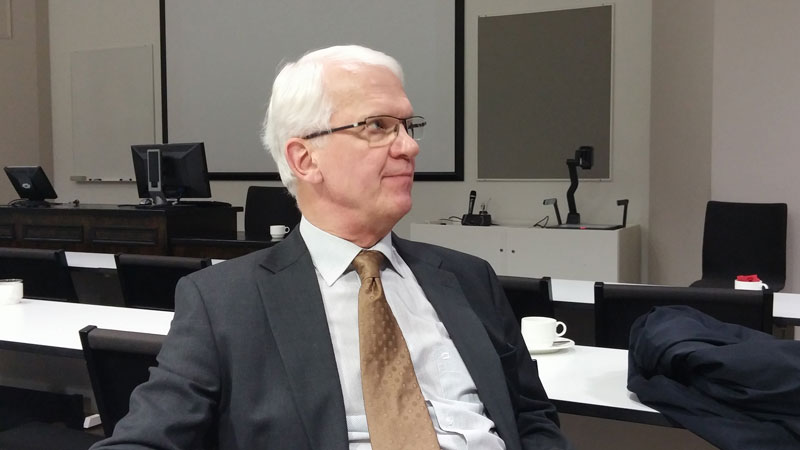I had the pleasure of interviewing management consultant Markku Vesa on his PhD thesis Innovation Management in the Construction Products Industry. Markku has a 40-year-long history in the industry in Finland, which makes this thesis very personal and insightful. He used a qualitative research methodology, strongly relying on theme interviews.
What is the problem with innovation in the Finnish construction products industry?
The management is the main thing that needs improvement. There are deficiencies in management, not only in construction, but in other Finnish industries as well. I can mention one well-known example from another industry. We’ve all seen how the management at Nokia failed. They had a matrix organization and, as far as I can tell, the business management did not keep pace with developers and innovators, and their paths did not cross. The organization was too complex to allow ideas to flourish.
I’ve been in the construction industry for 40 years and I’ve been baffled at how business managements almost discard innovation. In public speeches, they emphasize how they nourish innovation in their firms. In real life, however, when people look for their support and expect them to create excitement – not to mention strategic decisions – they don’t live up to the expectations. A few companies succeed, but most do very little, if anything, to advance innovation in their organizations.
A typical business manager believes that there’s no time for innovation and that there are more pressing matters. I think that one important factor is that managers feel that they have to come out of their comfort zone. Innovation management is not a walk in the park. You have to face difficult issues, both technologically and development-wise. In particular, if something is based on scientific research, it looks very demanding and challenging in the eyes of an average business manager. They may pass it down to a lower level in the organization, to people who may not have the business insight to make the new thing commercially viable. If these people see that the management is not wholeheartedly involved, they also lose interest.
Is there something different in the construction industry that makes business managers neglect innovation?
I have indeed contemplated this question. Many professional managers in the industry today are financial or generic managers. Do they have what it takes to lead a company that is driven by technology? If an enterprise is large enough, you could say that managing becomes easier, more generic. Maybe not. Can a technologically illiterate person create the innovative drive that is needed? I’ve always thought that leaders should understand the market, the business and the technology of the company they are leading.
What I said earlier is also important. A company should have a clear strategy for innovation: are we committed or are we not? I think that many firms have not made up their minds. They have a few developers, supposedly doing some improvements, but without a clear innovation process.
It’s totally all right to decide not to be in the vanguard. Many small local players can get by quite well with just copying what others have invented.
I included some HVAC firms in my research for a purpose. In their business, it is vital to keep up with advances in technology. If they fail to do so, they’re out of business. Some of the best in Finland are Halton and Oilon. They have a totally different drive from a traditional concrete firm.
Lastly, the construction product market is in a confused state. There are all sorts of vendors and contractors, selling products as a part of their offering. Price is the decisive factor. In addition, we have designers, engineers, general and specialist contractors, property owners and users, all setting their own requirements. From a manufacturer’s view, it is really hard to serve all the – often contradictory – demands.
We know that Finland’s economy is struggling to grow. Our industry needs new ideas and products, and for the markets to start growing again. Undifferentiated bulk production is not the answer. What does this require from the construction products industry?
The answer is quite simple. If we don’t have new leadership and management that embraces innovation, we’re doomed.
I’ve found very little discussion on innovation management in Finland. To my delight, I heard that TEKES (the Finnish Funding Agency for Innovation) is arranging an open seminar on innovation management next week.
Another issue that I find troublesome is the lack of product, or rather, offering strategy in manufacturing. I just read about some new research on business success factors. The list was long: resources, people, funding and so on, but there was no mention of the company’s offering. I think that’s a troublesome omission.
Do you see any light at the end of the tunnel for innovation management?
Frankly, I have not seen much evidence for this. However, my thesis has aroused interest, and many have seen it as an important opening for discussion in the industry. Perhaps businesses are becoming aware of the problem, but so far there has not been any real movement. I’m not a great optimist on this issue.
Do you think that the eventual generation change in management will help?
It might. Young people have a different way of thinking. However, as you know, the culture and value networks in construction are quite challenging.
An article on Markku’s thesis is available at rym.fi.
View the original article and our Inspiration here


Leave a Reply